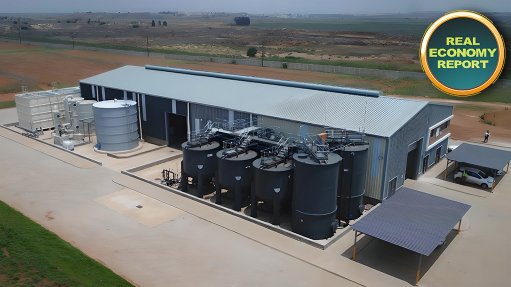The scourge of Twitter bots
So, the new Twitter lord, South African-born US tycoon Elon Musk, plans to introduce an $8-a-month charge for its Blue service, where a blue check mark next to the username on the social media platform signifies that Twitter has confirmed that the account belongs to the person or organisation claiming it. He says the price will be “adjusted proportionate to purchasing power parity”, implying that the amount payable in Africa, where 33 out of 54 countries are classified by the United Nations as least developed, will be much lower than in, say, the US.
The service is currently available in only four countries – the US, Canada, Australia and New Zealand – and Musk stated earlier this month that the account verification fee is being introduced to “defeat the bots and trolls”.
On our shores, one of the first prominent South Africans to tweet their approval of the new policy was tannie Helen Zille, formerly leader of the Democratic Alliance and now head of the party’s powerful federal council. This, she opined, will turn Twitter into a true “public town square involving real people – not digitally manipulated bot armies, adding volume to various nefarious agendas”.
Zille did not end there – she gleefully stated that millions of Twitter accounts would be cancelled, leading to a commensurate decline in Twitter bot armies. That’s not quite correct. The bad guys will continue to terrorise those they don’t like using unverified accounts set up for that purpose. And what would stop an organisation with nefarious motives that has the financial wherewithal from taking out thousands of Blue service subscriptions using fake accounts?
That said, Zille has a point – the world would be a much better place without Twitter bot accounts, which are automated and can do the same things as humans, including following other users, and liking and retweeting posts from others. Through these capabilities, bots can engage in potentially deceptive or reputation-damaging exchanges with human users.
Mass communication scholars have demonstrated that the media, in their legacy guise – as newspapers, magazines or broadcasts – and as online platforms such as news websites and the likes of Twitter and Facebook, are capable of causing their audiences to perceive individuals or entities such as companies in a particular way. The resultant perception may bear no resemblance to the correct situation at all.
That the media have perception-shaping capabilities is, of course, ancient wisdom. As far back as 1922, American journalist and political commentator Walter Lippmann wrote in his famous book, Public Opinion, that journalists, through their reporting, paint the picture in the head of each one of us and that “the pictures inside people’s heads do not automatically correspond with the world outside”.
The work of modern mass communication scholars since the early 1970s has seen this observation develop into the media agenda setting theory. A very interesting study, which reviewed media coverage of key American issues during the 1960s, comparing this with the results of public opinion polls undertaken during the same period, found that media coverage of key public issues such as the US-Vietnam war, disturbances at American universities and rioting in urban areas peaked two or three years before these issues came to a climax, while public concern about these issues started fizzling out as media interest in them waned. Thus, the public became concerned about an issue only when it was covered by the media, with the issue ceasing to exist in the public psyche once it was no longer prioritised by the media.
Given this power held by the media – in their many guises – it’s difficult to dispute that Zille was spot-on when she said bots are causing immense harm to individuals and organisations alike.
Comments
Press Office
Announcements
What's On
Subscribe to improve your user experience...
Option 1 (equivalent of R125 a month):
Receive a weekly copy of Creamer Media's Engineering News & Mining Weekly magazine
(print copy for those in South Africa and e-magazine for those outside of South Africa)
Receive daily email newsletters
Access to full search results
Access archive of magazine back copies
Access to Projects in Progress
Access to ONE Research Report of your choice in PDF format
Option 2 (equivalent of R375 a month):
All benefits from Option 1
PLUS
Access to Creamer Media's Research Channel Africa for ALL Research Reports, in PDF format, on various industrial and mining sectors
including Electricity; Water; Energy Transition; Hydrogen; Roads, Rail and Ports; Coal; Gold; Platinum; Battery Metals; etc.
Already a subscriber?
Forgotten your password?
Receive weekly copy of Creamer Media's Engineering News & Mining Weekly magazine (print copy for those in South Africa and e-magazine for those outside of South Africa)
➕
Recieve daily email newsletters
➕
Access to full search results
➕
Access archive of magazine back copies
➕
Access to Projects in Progress
➕
Access to ONE Research Report of your choice in PDF format
RESEARCH CHANNEL AFRICA
R4500 (equivalent of R375 a month)
SUBSCRIBEAll benefits from Option 1
➕
Access to Creamer Media's Research Channel Africa for ALL Research Reports on various industrial and mining sectors, in PDF format, including on:
Electricity
➕
Water
➕
Energy Transition
➕
Hydrogen
➕
Roads, Rail and Ports
➕
Coal
➕
Gold
➕
Platinum
➕
Battery Metals
➕
etc.
Receive all benefits from Option 1 or Option 2 delivered to numerous people at your company
➕
Multiple User names and Passwords for simultaneous log-ins
➕
Intranet integration access to all in your organisation
















